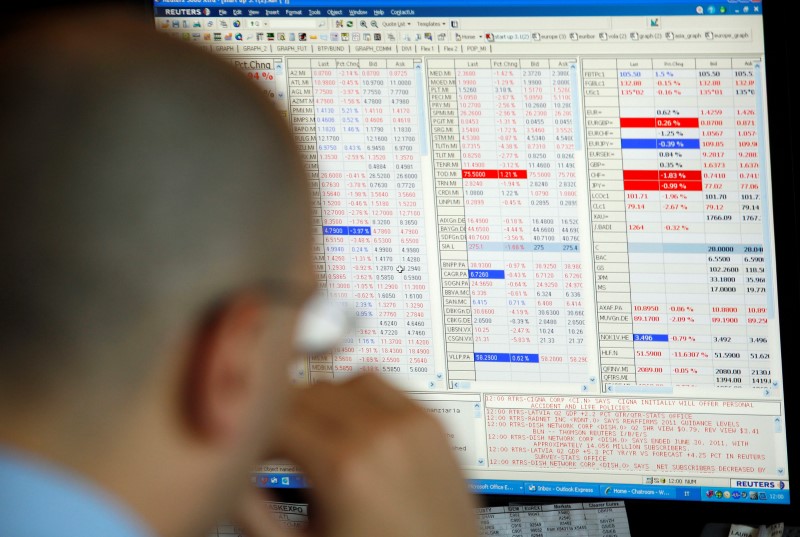By Martin Coulter
LONDON (Reuters) – Britain will host the world’s first global artificial intelligence (AI) safety summit this week to examine the risks of the fast-growing technology and kickstart an international dialogue on regulation of it.
It will take place at Bletchley Park – where Britain’s World War Two code-breakers worked – in southern England on Nov. 1-2.
Here’s what we know about the gathering:
WHO IS GOING?
Organisers told Reuters there would be around 100 guests, including world leaders, tech company executives, academics and nonprofits. The full guest list has not been made public.
Some world leaders – including German Chancellor Olaf Scholz and Canadian Prime Minister Justin Trudeau – will not attend, but U.S. Vice President Kamala Harris, European Commission President Ursula von der Leyen, China’s tech vice minister Wu Zhaohui and United Nations’ Secretary-General Antonio Guterres will.
China’s presence is another sign of thawing relations with Britain, after its top diplomat James Cleverly visited Beijing in August in the first trip by a British foreign secretary in five years.
Executives from the best-known AI companies in the world – including Google (NASDAQ:) Deepmind CEO Demis Hassabis and Sam Altman, who founded ChatGPT creator OpenAI, which is backed by Microsoft (NASDAQ:), will also attend. Representatives from Alibaba (NYSE:) and Tencent will be there.
Billionaire entrepreneur Elon Musk will join the event.
Academics and nonprofits, which have warned of the risk of the rise of AI, will also take a leading role, represented by AI “godfathers” such as Stuart Russell and Geoffrey Hinton, alongside the Alan Turing Institute and the Future of Life Institute.
WHAT WILL BE DISCUSSED?
The aim of the summit is to start a global conversation on the future regulation of AI.
Currently there are no broad-based global regulations focusing on AI safety, although some governments have started drawing up their own rules. For instance, the European Union has written the first set of legislation governing its use for the bloc.
According to the summit agenda, there will be a series of roundtable discussions on threats posed by future developments in the tech.
Topics include how AI systems might be weaponised by hackers, or used by terrorists to build bioweapons, as well as the technology’s potential to gain sentience and wreak havoc on the world.
Experts and regulators appear split on how to prioritise these threats, with the EU’s long-awaited AI Act prioritising potential infringements of human rights – such as data privacy and protection from surveillance – versus the so-called existential risks which dominate much of the summit’s agenda.
WHY IS IT HAPPENING NOW AND IN THE UK?
British Prime Minister Rishi Sunak wants Britain to be a global leader in AI safety, carving out a role after Brexit between the competing economic blocs of the United States, China and the European Union.
The event comes almost a year after OpenAI released AI-powered chatbot ChatGPT to the public, sparking international debates over the rapidly-developing technology’s potential, with some experts comparing it to climate change or nuclear weapons.
WHAT WILL IT ACHIEVE?
When the summit comes to a close on Thursday, Sunak is expected to deliver a speech outlining what participants have agreed on, before joining Musk for a live discussion to be broadcast on X.
A recent Financial Times report said Sunak plans to launch a global advisory board for AI regulation, modeled on the Intergovernmental Panel on Climate Change (IPCC).
When Sunak announced the summit in June, some questioned how well-equipped Britain was to lead a global initiative on AI regulation.
Since then, U.S. President Joe Biden has issued an executive order governing the use of AI across the country, the EU has edged closer to passing its own AI Act, and the G7 agreed its own code of conduct for companies using the technology.
Last week, the UN announced it had formed its own AI advisory board – made up of a few experts from industry, research, and different governments.
But advocates say Britain has a role to play as an intermediary between the world’s three great power blocs – the U.S., the EU, and China – and hope the summit will lay the groundwork for future international dialogue on the matter.
Read the full article here



